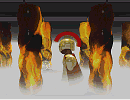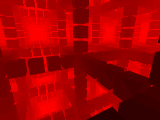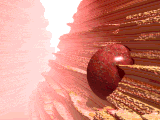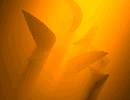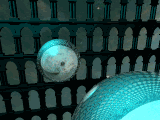Ars Ignota [Latin] – Unknown Art
Magic is believing in yourself, if you can do that, you can make anything happen. - Johann Wolfgang von Goethe
The Essence of Magic and Supernatural Spirituality
Magic and supernatural spirituality revolve around the belief that unseen forces—whether spirits, energies, or cosmic powers—can be harnessed to influence the physical or spiritual world. Rooted in the idea of a universal life force, akin to the ancient pneuma (Greek for breath or spirit) or ruach (Hebrew for spirit), this form of spirituality sees reality as malleable, shaped by intention, ritual, or esoteric knowledge. From ancient spell-casting to modern occult practices, it blends mysticism, willpower, and reverence for the unknown. Unlike spiritism’s focus on communicating with the deceased or shamanism’s journeys through spirit realms, magic emphasizes active manipulation of unseen forces for transformation, healing, or insight. This exploration delves into its practices, cultural expressions, and enduring allure in humanity’s quest for transcendence.
Foundations of Magic and Supernatural Spirituality
At its core, magic and supernatural spirituality rest on the belief that reality is infused with hidden energies or entities accessible through specialized knowledge or rituals. Practitioners view the universe as a dynamic interplay of forces, where human will can align with or direct these powers. The concept of a life force—echoed in pneuma or the Wiccan notion of universal energy—underpins practices like spell-casting or divination. Ancient traditions, such as Egyptian magic or Hermeticism, saw the cosmos as governed by divine principles, while modern systems like Wicca or chaos magic emphasize personal empowerment. This spirituality appeals to those who seek to shape their destiny through the unseen, blending intuition with disciplined practice.
Practices and Rituals
Magical practices are diverse, ranging from structured rituals to intuitive acts. Spell-casting, common in Wicca, uses incantations, herbs, or candles to focus intention, aiming to manifest outcomes like love or protection. Divination tools, such as runes or scrying mirrors, reveal hidden truths by tapping into supernatural forces. Alchemy, both ancient and symbolic, seeks transformation—physical or spiritual—through rituals like blending elements. Ceremonial magic, as in the Golden Dawn, employs complex rituals to invoke spiritual entities. Modern practices might include visualization or sigil creation, simplifying ancient techniques for personal use. These acts harness the practitioner’s will to interact with the unseen, bridging the mundane and the mystical.
Core Practices of Magic and Supernatural Spirituality
- Spell-Casting: Rituals using words, objects, or symbols to manifest intentions.
- Divination: Tools like runes, tarot, or scrying to access hidden knowledge.
- Alchemy: Transformative rituals, symbolic or physical, for spiritual growth.
- Ceremonial Magic: Structured rituals to invoke spiritual forces or entities.
Diversity Across Cultures
Magic and supernatural spirituality span global traditions, shaped by cultural contexts. Ancient Egyptian priests used heka (magic) to align with divine powers, while Celtic druids cast spells tied to nature’s cycles. African traditions, like Vodou, invoke loa (spirits) through ritual offerings. Medieval European grimoires outlined complex magical systems, influencing modern occultism. Wicca, a 20th-century revival, blends pagan roots with modern ethics, emphasizing harmony with nature. Chaos magic, a postmodern approach, prioritizes personal belief over tradition. These diverse expressions reflect a shared belief in manipulating unseen forces, adapting to local cosmologies and modern needs.
Strengths and Challenges
The strength of magic and supernatural spirituality lies in its empowerment, giving practitioners agency to shape their reality through intention and ritual. Its flexibility accommodates diverse beliefs, from traditional to eclectic, fostering creativity and personal growth. It also connects to nature or cosmic forces, resonating with ecological or philosophical seekers. However, its reliance on subjective experience invites skepticism, with critics questioning the efficacy of spells or rituals. Cultural stigmas, often rooted in religious or scientific rejection, can marginalize practitioners. The risk of charlatanism or overemphasis on power also challenges its integrity, requiring discernment to maintain authenticity.
The Personal and the Collective
Magic and supernatural spirituality balance individual and communal dimensions. A solitary witch crafting a spell seeks personal transformation, while group rituals, like Wiccan covens or Vodou ceremonies, strengthen collective bonds. The belief in a universal life force—whether energy, spirits, or ruach—unites these efforts, suggesting that personal acts ripple through a larger cosmic web. Communal practices, such as seasonal rites or group divinations, foster shared purpose, while individual rituals allow tailored exploration. This duality makes magic both a personal craft and a collective celebration of the unseen, appealing to those who seek both autonomy and connection.
Magical Traditions and Their Expressions
- Wicca (Modern): Nature-based magic with spells and seasonal rituals.
- Vodou (African-Caribbean): Spirit invocation through offerings and dance.
- Hermeticism (Western): Esoteric rituals based on cosmic principles.
- Chaos Magic (Modern): Flexible, belief-driven practices for personal outcomes.
Magic and Supernatural Spirituality in a Modern Context
In today’s world, magic and supernatural spirituality thrive amid renewed interest in alternative practices. Wicca and neo-paganism grow in popularity, offering ethical frameworks for modern seekers. Online communities share spells or sigils, democratizing access to magical knowledge. Scientific parallels, like quantum theories of energy, inspire some practitioners, though others remain purely intuitive. Challenges include navigating skepticism and avoiding commercialization, which can trivialize sacred practices. For seekers, magic offers a path to transcendence through active engagement with unseen forces, blending ancient wisdom with contemporary creativity.
Bridging to Broader Exploration
Magic and supernatural spirituality, with its focus on manipulating unseen forces, extends spiritism’s communication with spirits while contrasting with nature-based spirituality’s reverence for the earth. It shares metaphysical spirituality’s quest for hidden truths but emphasizes practical application over abstract theory. The series continues with traditional spirituality, which explores cultural and ancestral practices, offering another lens on humanity’s quest for connection. Magic’s wielding of the unseen illuminates the soul’s search for agency and mystery.



